The Complete UK Heat Pump Guide 2025 — Grants, Costs & Savings
Switching to a heat pump is one of the best long-term moves you can make for energy savings, lower carbon emissions, and future-proofing your home. But there are a lot of details to get right. Here’s everything you need to know in 2025: types of heat pumps, costs, what grants are available, what savings to expect, and whether it’s right for you.
What is a heat pump & how does it work
- A heat pump extracts heat from an external source (air, ground, or water) and uses that to heat your home (and sometimes hot water). In summer some kinds reverse to provide cooling. (Energy Saving Trust)
- Because they move heat rather than create it by combustion, they are often much more efficient. The Coefficient of Performance (CoP) describes how many units of heat you get per unit of electricity; more usefully, Seasonal Coefficient of Performance (SCoP or SPF) gives a real-world annual average considering variation in outside temperature. (Energy Saving Trust)
Types of heat pumps
Here are the main varieties, with pros & cons:
| Type | Pros | Considerations |
|---|---|---|
| Air-source heat pump (ASHP) | Most common; simpler installation; less disruption; cheaper than ground source. Works well for many UK homes. (Energy Saving Trust) | Lower efficiency in very cold weather; may need larger radiators or underfloor heating; outside unit required. |
| Ground-source heat pump (GSHP) | Higher efficiency, especially in colder climates; quieter; more stable output. (Energy Saving Trust) | Much higher upfront cost; need adequate land or borehole; more complex installation. |
| Water-source / other/Hybrid heat pumps | (Less common) Can be useful if you have access to a water source; hybrids can ease transition. (GreenMatch.co.uk) | Less available; may require more specific conditions; possibly more complex maintenance. |
What costs to expect in 2025
Upfront costs (purchase + installation):
- Air-source heat pumps: Typical total costs (before grants) for a 3-4 bedroom house are about £7,000 to £13,500, sometimes more depending on how much retrofit work is needed. (GreenMatch.co.uk)
- Ground-source heat pumps: These are significantly more expensive—due to groundworks (trenches or boreholes) etc. Average install costs here are often in the £20,000 to £30,000+ range. (Energy Saving Trust)
Running costs:
- Running costs depend a lot on what you are replacing, how well insulated your home is, how cold your winters are, electricity prices, etc. (GreenMatch.co.uk)
- As an example: replacing a gas boiler with an ASHP might save around £200-£300/year in typical bills. If replacing more expensive heating (oil, electric, LPG) or older systems, savings are higher. (GreenMatch.co.uk)
Other costs & considerations:
- You may need to upgrade radiators, install larger emitters or underfloor heating to get the full benefit, especially if replacing from a high temperature boiler system. (Energy Saving Trust)
- Maintenance / servicing: heat pumps generally need annual servicing; parts or repair costs vary. Expect more expensive maintenance than a simple gas boiler in many cases. (HomeOwners Alliance)
Grants & financial support (2025)
Government support is helping make heat pumps more affordable. Here are the main schemes in 2025, who is eligible, and how much they help:
| Scheme | Where & Who | What you can get | Key eligibility / notes |
|---|---|---|---|
| Boiler Upgrade Scheme (BUS) | England & Wales | Up to £7,500 grant towards air source or ground source heat pump installations. (GreenMatch.co.uk) | You need a valid Energy Performance Certificate (EPC); replacing an existing fossil fuel or electric heating system; installer must be MCS-certified. Deadline: running until March 2028. (whatcost.co.uk) |
| Energy Company Obligation (ECO4) | England, Wales, Scotland | For eligible (often low income / vulnerable) households this scheme can cover the full cost, or large part, of supply + installation of heat pump + insulation etc. (whatcost.co.uk) | Eligibility stricter; based on income, benefits, efficiency of home; must meet scheme criteria. Ends / review by March 2026 for many elements. (whatcost.co.uk) |
| Home Energy Scotland & Warmer Homes Scotland | Scotland | Up to £7,500 grant + up to £7,500 interest-free loan, or grants of up to £10,000 in some schemes. (whatcost.co.uk) | |
| Warm Homes Local Grants & schemes in Wales (Nest etc.) | Wales (and some local English schemes) | Varies: grants that may significantly reduce cost; sometimes full funding in some cases. (whatcost.co.uk) | |
| Northern Ireland (NISEP) | Northern Ireland | NISEP offers support; in some cases up to full funding depending on income and scheme. (whatcost.co.uk) | |
| VAT reduction | UK wide | 0% VAT applies on domestic heat pump installations until March 2027, which helps reduce cost. (GreenMatch.co.uk) |
Savings, Payback & What to Watch Out For
What savings can you expect
- Compared to old, inefficient fossil fuel boilers (oil, LPG, gas, or electric), heat pumps can save a good chunk of heating costs each year. Amount depends on current fuel, house type, insulation, usage. (GreenMatch.co.uk)
- As a rough guide: saving £200-£300/yr is plausible when replacing a gas boiler in a well insulated house. Bigger savings (perhaps several hundreds to over a thousand) if replacing electric or oil heating systems. (The Renewable Energy Hub)
Payback period
- Because of the high upfront cost, payback is usually several years. For many air source heat pumps, the time to “break even” (i.e. recouping the extra cost over a boiler) tends to be 6-14 years, depending on how much you pay for fuel currently, how well insulated your home is, how efficient the pump is, etc. (GreenMatch.co.uk)
- For ground source heat pumps, the payback period is often longer, perhaps 10-20+ years, because of the larger initial cost. (Energy Saving Trust)
What must be in good shape
To get good value from a heat pump, some preconditions often apply:
- Insulation & energy efficiency — walls, loft, floors, windows etc. If your house is leaky / poorly insulated, a lot of heat (and money) will be lost; you may need to upgrade insulation before or during installing. (HomeOwners Alliance)
- Radiator / emitter sizing — since heat pumps often run at lower water temperatures, you might need larger radiators or underfloor heating. (Energy Saving Trust)
- Space & outdoor unit (for ASHP) — needs external space; some noise and planning/permitted development rules may apply. (Energy Saving Trust)
Rules, Permissions & Timing
- Planning / permitted development: Many heat pump installs are “permitted development”, meaning no planning permission needed. But if you are in a conservation area, a listed building, or the outdoor unit is large or near boundary, you may need permission. (Energy Saving Trust)
- EPC requirement: For many grants (e.g. BUS) you need an Energy Performance Certificate at a certain rating (often D-G) to be eligible, and sometimes you’ll need to improve insulation before or as part of the installation. (whatcost.co.uk)
- Installers must be certified: Most schemes require your installer to be MCS certified (or equivalent), so check credentials. (whatcost.co.uk)
Is it right for you? Key questions to ask
Before going ahead, consider:
- What is your current heating cost, and what fuel do you use (gas, oil, electricity, LPG)?
- How well insulated is your home? What is the current EPC rating?
- How much work would be needed (radiator upgrades, possible ducting or space for cylinder, groundworks if GSHP)
- What sort of usage / temperature do you need – if you like very warm houses, or thermostats very high, the performance of the heat pump will be relevant.
- What grant(s) you qualify for, and whether applying is straightforward for you.
Summary
- Heat pumps are increasingly affordable in the UK thanks to government grants (notably the Boiler Upgrade Scheme providing up to £7,500 off costs). (GreenMatch.co.uk)
- Even after grants, the upfront cost is significantly higher than a new gas boiler, particularly for ground-source systems. But operating savings and carbon savings over time can make them a strong investment.
- Payback tends to take several (6-15) years for ASHPs in many typical cases; longer for GSHP, but also longer lifespan and more stable performance.
- You’ll get the best results if your home is well insulated, the heating delivery (radiators / emitters) is upgraded if needed, and you use a qualified installer.
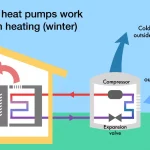

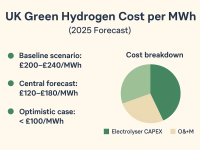
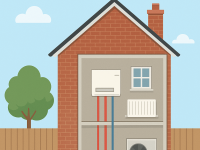

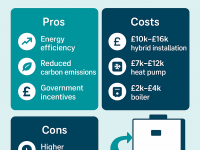
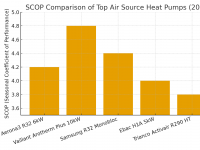
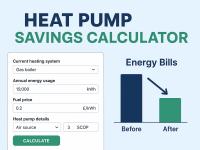
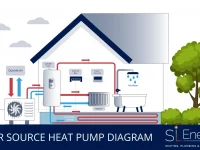
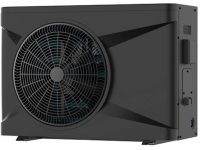

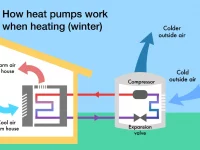
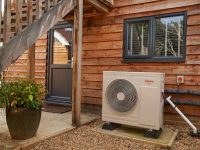

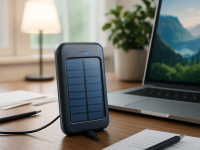
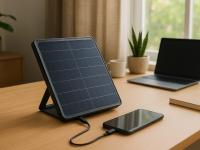

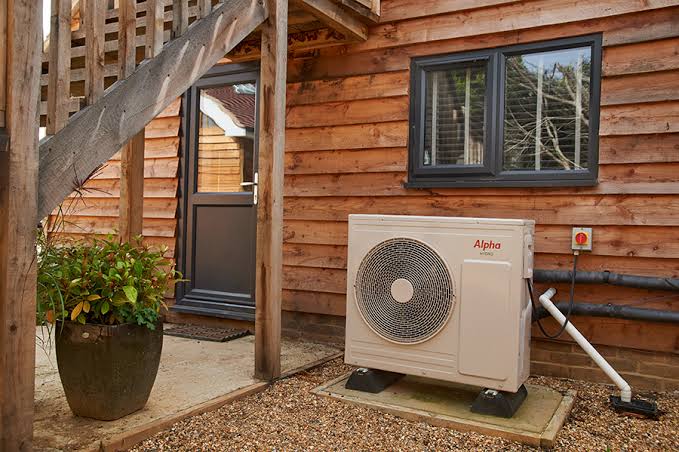
One Comment